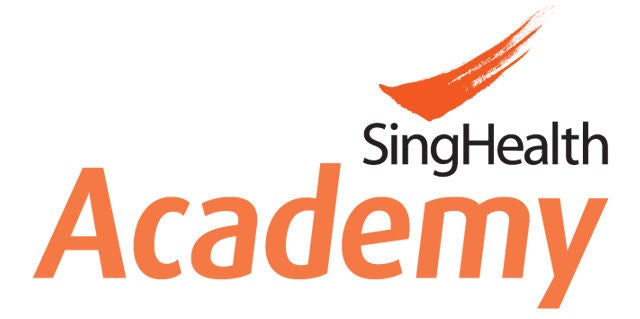SingHealth Academy will NEVER ask you to transfer money over a call. If in doubt, call the 24/7 ScamShield helpline at 1799, or visit the ScamShield website at www.scamshield.gov.sg.
Serious Games

Serious Games
What Are Serious Games?
Serious games are games built for a purpose beyond entertainment, which can be applied for serious purposes to bring about learning and change. Defined as the intersection between learning, simulation, and gaming, serious games can utilise various gaming technologies to promote or assist in an individual's training or the advancement of an industry as a whole. Not only do serious games offer more interactive learning, they also harness the power of competition and create a sense of achievement to motivate participants to optimise their own performance.
Serious games usually utilise various emerging technologies, such as:
- Augmented Reality (AR):
A mixture of virtual reality with real life, using layers of computer generation to enable an enhanced interaction with reality. Examples in healthcare which make use of AR technologies, include the Medical Simulated Interactive Manikin (MediSIM), CAE Vimedix AR Ultrasound Simulator and the Accuvein AV500 Vein Viewing System.
- Virtual Reality (VR):
A completely artificial, computer-generated simulation of a real-life experience, which typically requires the use of a virtual reality headset in order to fully immerse the user. The Parachute Flight Simulator (PFS) typically used by the military, or the Flight Simulation Training Device (FSTD) employed in the aviation industry, are some examples of how VR is applied in specialised training.
- Mixed Reality (MR):
A combination of elements of both AR and VR, where real-world and digital objects interact. An example is the MR lens used by the Republic of Singapore Air Force (RSAF) and Air Force Training Command (AFTC) to simulate various environmental conditions and scenarios which are difficult to replicate in real life, in a cost-efficient and time-efficient manner.
Serious Games in the SingHealth Duke-NUS AMC
With the aid of simulation and visualisation technologies, serious games are able to teach multidisciplinary healthcare professionals key procedural and cognitive skills in an engaging manner. Click here to read about how SGH’s Department of Neonatal and Developmental Medicine used serious games to teach neonatal resuscitation skills.
Collaborations to Advance Serious Games in Healthcare
To encourage the development and implementation of serious games in healthcare, SIMS collaborates with the Serious Games Association (SGA), a non-profit serious games and game technology society registered in Singapore, to equip healthcare professionals to apply gamification in healthcare.
Past collaborations with SGA include the SIMS Games Challenge 2019, a healthcare simulation serious game competition, which saw healthcare professionals submitting concepts and developing prototypes of simulation games. SIMS and SGA are also collaborating to organise RICH Games 2022, a first-of-its-kind Conference for the Southeast Asian region, which explores emerging solutions and innovations to advance healthcare education.
SIMS also partners with higher education institutions, such as Temasek Polytechnic (TP) and Singapore University of Technology and Design (SUTD), conducting courses to prepare healthcare professionals for digital workplace transformation. The courses equip healthcare educators in Singapore with foundational principles in game design and the latest insights on technological innovations. Click here to find out more about the latest dates of the courses.
Here are some ways to start developing your own serious game for healthcare:
- Read our three-minute guide to serious games here.
- Sign up for the latest workshops on serious games here.
- Need support/guidance for your serious game? Contact the SIMS team at sims@singhealth.com.sg.
Useful Resources on Serious Games:
- Computational Psychometrics for the Measurement of Collaborative Problem Solving Skills
- Conversation-based Assessment
- Everything You Need to Know About Designing Effective Learning Games
- Games, Virtual Environments, Mobile Applications and a Futurist's Crystal Ball
- Game-based Learning Methods and Strategies
- Game-based Training Improves the Surgeon’s Situational Awareness in the Operation Room: A Randomized Controlled Trial
- Healthcare Game Design: Behavioral Modeling of Serious Gaming Design for Children with Chronic Diseases
- Know-What-is-What In Future Learning Tech
- Learning about Hygiene and Antibiotic Resistance through Mobile Games: Evaluation of Learning Effectiveness
- Playing The Game: A Model for Gameness in Interactive Game-based Learning
- Serious Games for e-Health Care
- Systematic Review of Serious Games for Medical Education and Surgical Skills Training
- What Video Games Have to Teach Us About Learning and Literacy
Stay Healthy With
© 2025 SingHealth Group. All Rights Reserved.
















